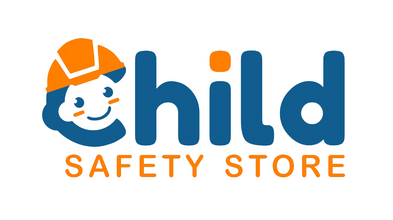
The Hidden Dangers of Kiddie Pools
Believe it or not, kiddie pools can be more hazardous than many parents realize!
Most parents realize how important it is to keep a close eye on children when they are swimming in the pool or ocean. But the deep end of the pool and water currents aren’t your only water safety concerns. It is vital that you also know about the potential dangers of baby pools, or “kiddie pools.”
These inflatable pools may seem harmless. You probably can’t imagine your kids getting into any trouble in such shallow water. It turns out, not only do these portable kiddie pools present a drowning risk, but they also can potentially make your child sick.
Today, let’s discuss why kiddie pool safety should never be ignored.
Two Inches or Less of Water is Still a Drowning Hazard
One reason kiddie pools are risky is because, well, no one expects them to be hazardous. After all, the water is far shallower than a typical pool. As a result, many parents let their guard down. This can prove to be a deadly mistake.
Contrary to popular belief, you don't need several feet of water to create a drowning danger. The truth is, anyone can drown in less than two inches of water. This risk is even greater for small children. Parents should pay just as much attention to kids in a portable or inflatable pool.
To this end, this warning also applies to bathtubs, mop buckets, toilets and anywhere else water may gather. Drowning can happen suddenly and without warning.
Kiddie Pools Can Spread Illness
Small inflatable pools and plastic pools have been associated with the spread of recreational water illnesses (RWIs). Often, this is water that has been contaminated with germs from swimmers with a diarrheal illness. If your child has been ill with diarrhea or vomiting, do not allow them to use the pool. This is the best way to avoid RWIs.
To avoid illness, bathe your child with soap before entering the pool, remind them to avoid getting pool water in their mouths, and empty the water from the pool when swim time is over. Finally, thoroughly clean the pool and allow it to dry in the sun for at least four hours.
Keep Kids in a Kiddie Pool Safe
There are several steps every parent can take to keep their kids safe when playing in their inflatable pool. Reducing your little swimmer’s risk of drowning is simpler than you might think.
- Drain kiddie pools when they aren't in use. It makes perfect sense – you can’t drown in water that isn’t there. By removing the water from your portable pool, you reduce the risk of the water becoming contaminated as well.
- Make sure your child knows that the pool is off limits unless they have both permission and an adult present.
- Better yet, make sure the inflatable pool is inaccessible when it isn’t in use. Store it until its next use or turn it upside down. This will also prevent it from collecting rainwater, which can create the same drowning hazard.
Pool Rules Apply
Whether your kids are in an “adult” pool or a smaller kiddie pool, the same general rules apply.
These are some additional steps that will help to ensure the safety of your little ones:
- Active supervision is paramount for harm-free pool play. Be sure that someone is always keeping an eye on any kids who are in the pool. Whoever is watching them should also be free of distractions – that means no cell phone, chit-chat or reading.
- Cross the t’s and dot the i’s when it comes to pool safety by learning CPR. Hopefully you won’t need to resort to using it; however, it is best to learn the life-saving skill just in case.
- Secure the area. A pool fence is a vital step toward keeping children and pets out of the pool area.
- Remove any and all toys from the pool area. If they remain in plain sight when no one is in the pool, your child may be tempted to try to play with them and fall in.
